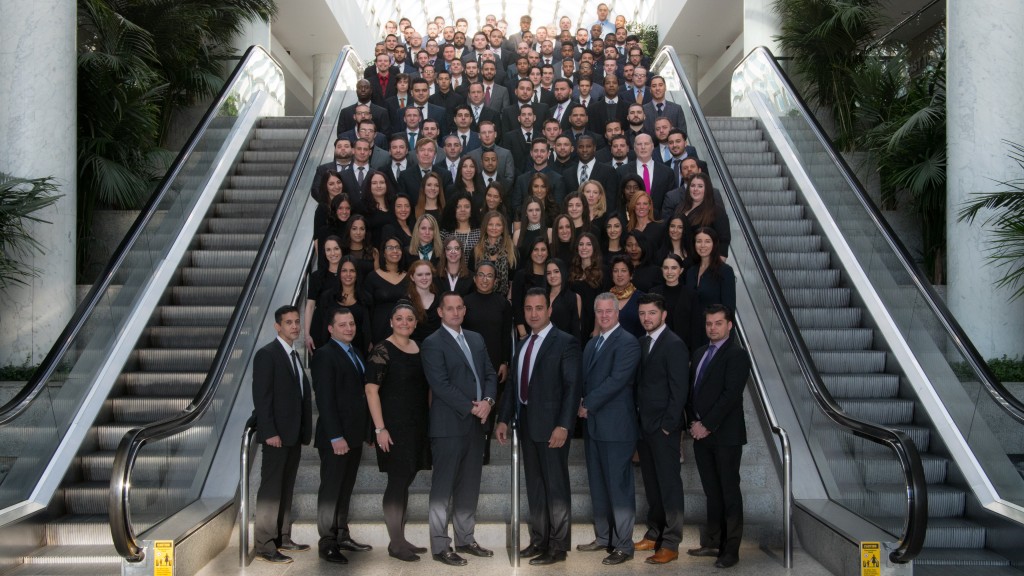New Regulations, Section 1071 of Dodd-Frank Among Them, Temporarily Frozen By Executive Order
January 23, 2017
Update 2/1/17: Disagreements abound over whether or not Trump’s recent regulatory freeze can affect the CFPB. According to the WSJ, part of this stems from the CFPB’s uncertain status as an independent agency after the the recent court decision in PHH Corp v. CFPB. “The CFPB is following a hiring freeze ordered separately by the Trump administration,” the WSJ states. This may be a signal that they do not feel totally insulated.
Section 1071 of Dodd-Frank had expanded Reg B of The Equal Credit Opportunity Act and granted the CFPB the authority to collect data from small business lenders. It’s all-encompassing considering that it oddly defined a small business lender as “any entity that engages in any financial activity.”
Although Dodd-Frank was passed in 2010 and the CFPB created in 2011, Section 1071 has been lying in wait. But just a month ago, the Federal Register said that its implementation was under way, with a pre-rule timetable of March 2017. “The Bureau is starting its work to implement section 1071 of the Dodd-Frank Act, which amends the Equal Credit Opportunity Act to require financial institutions to report information concerning credit applications made by women-owned, minority-owned, and small businesses,” it says.
And that work is no doubt a big undertaking, especially if it is really supposed to cover any entity that engages in any financial activity.
“The amendments to ECOA made by the Dodd-Frank Act require that certain data be collected and maintained, including the number of the application and date the application was received; the type and purpose of loan or credit applied for; the amount of credit applied for and approved; the type of action taken with regard to each application and the date of such action; the census tract of the principal place of business; the gross annual revenue of the business; and the race, sex, and ethnicity of the principal owners of the business. The Dodd-Frank Act also provides authority for the CFPB to require any additional data that the CFPB determines would aid in fulfilling the purposes of this section.”
Fear exists in the commercial finance community that the CFPB will use such data in a misinformed way to levy penalties and exert control over business-to-business transactions even though its statutory power is limited to just the collection of information.
Although the CFPB is still in the information gathering stage on Section 1071, the President’s regulatory freeze is likely only the first step of many to delay or dismantle their rules. And that’s at a minimum. Presently, the CFPB is faced with the threat that Trump will fire its director or abolish the agency altogether. There is strong support for this among Republicans, especially given that a federal court recently held that the CFPB’s structure is unconstitutional. In PHH Corp v. CFPB, the court offered two ways for the agency to come into compliance with its order, either reconfigure into a multi-member directorship or yield the director’s power to the President of the United States. Sitting CFPB Director Richard Cordray rebuffed the order as “wrongly decided” and declined both. His term ends in 2018.
The CFPB’s brash refusal to make concessions or accept court orders has made it a prime target of Trump’s administration. Because of the battles with the agency still to come, it is possible that Section 1071 may not begin to see the light of day for at least another four years.
If You Don’t Make Loans, You’re Not a Lender (And definitely not a ‘direct lender’)
January 19, 2017 Small business owners in multiple states are arguing that the contracts they engaged in were loans despite the agreements specifying otherwise. In one case with multiple defendants that was filed two weeks ago in federal court, the plaintiff attached emails from the ISOs and funders they allegedly communicated with as evidence, several of which purportedly used the words “loans” or “lender.” That on its own might not be so bad except that the plaintiff entered into contracts for the purchase of future sales, in which case the words would not make sense.
Small business owners in multiple states are arguing that the contracts they engaged in were loans despite the agreements specifying otherwise. In one case with multiple defendants that was filed two weeks ago in federal court, the plaintiff attached emails from the ISOs and funders they allegedly communicated with as evidence, several of which purportedly used the words “loans” or “lender.” That on its own might not be so bad except that the plaintiff entered into contracts for the purchase of future sales, in which case the words would not make sense.
While that matter and others will be litigated and decided on the merits, this should be a wake-up call for any ISO or funder that thinks the use of proper terminology is best left for lawyers and fine print in contracts. A court ordered recharacterization of a contract could have very negative consequences (if you want to know what kind, speak with an industry attorney).
Imagine working for a small ISO and one day being subpoenaed to do a deposition and potentially facing liability because of something you said on the phone or in an email. The easiest way to avoid this is to use the proper terminology at all times. If the product you sell or underwrite is a standard merchant cash advance (purchase of future sales), then it will never make sense to say loan, lender or any words related such as repay in any communication regardless of whether or not it’s with a customer or internally. Calling yourself a “direct lender” for example, is especially illogical.
If you’re at all confused, seek out your company’s manager or compliance officer for additional training. Another helpful resource is Merchant Cash Advance Basics, A certification course offered by CounselorLibrary and deBanked to help explain the differences between loans and MCAs. Given the challenges taking place in courts around the country, it’s never been more important to be knowledgeable on the products you offer.
CAN Capital is Changing the World’s Most Expensive Tire
January 16, 2017
Acting CEO Parris Sanz told the WSJ that what’s happening at CAN Capital right now is akin to changing a flat tire. “We hit a bump in the road and blew out a tire,” Sanz said. “We just need to change out the tire, and we’ll be back on the road.”
But sources say that the company is in the midst of trying to sell off assets including its loan portfolios to raise cash in a hurry. In the span of a few weeks the company has let go of more than half of its employees, has suspended funding new deals, put its top executives on leave, been sued by a shareholder, and suffered a rapid amortization event with its $200 million bond deal. That’s on top of a breach that the WSJ reported with CAN’s $650 million credit facility led by Wells Fargo. A spokesperson for Wells told me they could not provide any comment or information on the matter.
And CAN’s issues aren’t the result of a changing economy, but rather internal systems that couldn’t keep up with their innovations. They’ve even hired a restructuring company to assist them through this crisis. It now being more than a month and a half since the story first broke, the WSJ puts the amount CAN is trying to raise “to strengthen its financial position” at $100 million.
If this is how they go about changing a tire, it may be time they sign up for AAA Roadside Assistance. For the merchant cash advance industry, their predicament is one of the biggest events of the decade by virtue of their history, size and renown. The company has funded more than $6 billion to small businesses since they launched in 1998.
Consider that just a few months ago, CAN was seemingly riding high as it promoted its new lending transparency initiative as part of the Innovative Lending Platform Association. And in July, Sanz represented the MCA & small business lending industry in a congressional hearing dedicated to financial institutions and consumer credit.
CAN’s top competitor is OnDeck whose stock has only inched up 8% since November 29th.
A spokesperson for CAN reiterated that this was an issue that they self-discovered and self-reported. “In the absence of information, people are making incorrect assumptions,” she said. “It affected about 3% of total assets in the portfolio under our senior line. It’s a manageable situation and one we are working through as we position ourselves for success in 2017.”
MCA Company Files Suit Against Debt Settlement Company
January 16, 2017Plaintiffs Pearl Gamma Funding, LLC and Pearl Beta Funding, LLC (Pearl) aren’t happy with what a debt settlement firm is allegedly telling their customers, according to a complaint filed in the New York County Supreme Court in November.
“Creditors Relief LLC researches customers who have entered into Merchant Agreements with Pearl, solicits them throughout the country, and advises them to breach their contracts with Pearl,” plaintiffs allege. They also cite an example in which an employee of defendant allegedly told a customer “that Pearl was engaging in illegal activity and its Merchant Agreements were unenforceable.”
Pearl’s causes of action against the defendant include tortious interference with contract, defamation and permanent injunction.
Creditors Relief, based in Englewood Cliffs, NJ, denied the allegations in their response but has asked the court to declare Pearl’s contracts with its customers unenforceable nonetheless.
Due to the nature of pending litigation, neither party was asked to comment.
Confessions of a Fintech Chief Data Scientist
January 8, 2017 My name is Justin Dickerson. For most of 2016, I was the Chief Data Scientist at Snap Advances (Snap), a funding company of merchant cash advances based in Salt Lake City, Utah. I can’t discuss my awesome work at Snap for obvious reasons. And fortunately, I don’t need to in order to make the key points I want to convey through this article. That’s because I’ve also been a senior level data scientist at two other companies, and I’m also a well-regarded statistician who holds one of the most prestigious credentials offered by the American Statistical Association.
My name is Justin Dickerson. For most of 2016, I was the Chief Data Scientist at Snap Advances (Snap), a funding company of merchant cash advances based in Salt Lake City, Utah. I can’t discuss my awesome work at Snap for obvious reasons. And fortunately, I don’t need to in order to make the key points I want to convey through this article. That’s because I’ve also been a senior level data scientist at two other companies, and I’m also a well-regarded statistician who holds one of the most prestigious credentials offered by the American Statistical Association.
One discovery over the past year prompted me to start collecting my thoughts for this article. I was looking at the financial performance of On Deck Capital (the largest company in the alternative fintech industry which is also publicly traded) through the first nine months of 2016 relative to the same period in 2015. Gross revenue increased more than $22 million while net income for the same period fell nearly $50 million. I’m not an accountant, but that doesn’t sound good to me. And let’s face it, this fact doesn’t surprise anyone in our industry, especially given what’s happening at CAN Capital. But one interesting and overlooked fact is worth considering. According to my Linkedin search, there were between 30 and 40 data scientists (all levels) working for On Deck Capital during the same time period in which they lost $50 million. So, not only does On Deck Capital lose a lot of money, it appears they need a lot of intellectual horsepower to figure out how to do so.
And here we are today. We’re looking at an industry full of companies trying to navigate the abyss of hyper-aggressive originators and spiraling default rates. If you’re a Chief Data Scientist for one of these companies, you’re undoubtedly feeling the heat from your management team. The problem is simple. How do you grow your business (or even stabilize it) in an environment where you have to take too many uncomfortable risks? We’ll ignore the fact this question has plagued much larger industries for many years (e.g., trying to compete against Wal Mart in the retail space). Boards of Directors in alternative fintech have short memories and believe this is a unique problem to their industry and era. As a result, data scientists are at a premium as they’re seen as key players in how to resolve this crisis and steer their companies to safe harbors. Well, here is my opinion. They’re dead wrong, and here is why.
Data Scientists Are Tactical, not Strategic
This statement may end up being the most controversial thing said in the data science industry this year. But let me make my case. Of those 30-40 data scientists working for On Deck Capital, more than 80% of them have a Master’s degree in a field of study synonymous with data science. Specifically, many of them attended Columbia University’s Master’s degree program in Operations Research. The four required courses for that degree are: Optimization Models and Methods, Introduction to Probability and Statistics, Stochastic Models, and Simulation. From there, students can choose from one of six concentrations (all but one of which are targeted toward quantitative methods). Further, students selected for this program already have highly refined quantitative skills as demonstrated by the pre-requisite courses for admission (e.g., multivariate calculus, linear algebra, etc.). So, in essence, the program takes really smart quantitative people (quants) and makes them even smarter quants, while sprinkling in 6 elective courses which may or may not provide an opportunity to learn something about the “real” world of business.
Make no mistake, the students attracted to programs such as these generally aren’t the professionals you send to meet with investors and pitch them on new strategic directions for a company. They are the professionals who sit in cubicles and spend their days writing code. They are experts in programming languages such as R, Python, Java, Scala, and many others. Ironically, they are enslaved to similar rules which govern the same supervised machine learning algorithms they create each day. They aren’t allowed to “get out of the box” and see the “forest through the trees.” If I’m portraying them as a bit robotic, that’s intentional on my part.
I don’t want to leave the impression data scientists can’t think for themselves. Specifically, those who earn a PhD are known to have such skills and are often praised for their abilities to rise above the technical chains of their existence and offer strategic direction to an organization. But they are few and far between in the data science factory found deep in the bowels of companies like On Deck Capital. Instead, more and more alternative fintech companies seek out the same “cookie-cutter” data scientist who can check off the same boxes on the hiring list. This means the data scientist role is relegated to a part of the company lacking diversity of thought, creativity, and the organizational respect needed to save a company from itself.
The Law of Diminishing Returns
One of the most intelligent questions asked of me within the alternative fintech industry was, “do we really have enough data to justify so many data scientists?” As a Chief Data Scientist, you always want to answer that question with an emphatic, “YES!” Even better, you may tell your management team you need even more data scientists to make a “real and lasting contribution to the company.” After all, the existence of your team depends on it. But when you’re away from the management team and thinking about the structure of your department, the honest Chief Data Scientist knows the company is at risk of experiencing the law of diminishing returns.
All of us can recognize the law of diminishing returns from our freshman year Economics course. In short, it’s the concept of achieving less than a one to one relationship between an additional unit of input relative to the resulting measured output. For example, the reduction in default rate for a financial product is hardly ever proportional to the number of data scientists employed by the company to predict default rates. In fact, I would argue once you have more than two or three data scientists, even the largest organizations would have a difficult time justifying the payroll investment based on proportional gains in default rate management.
So, why do companies like On Deck Capital have so many data scientists? I believe it’s more akin to the comfort food we all like to eat in the winter. There is hardly anything as satisfying as my grandmother’s homemade chili during a cold Utah night. And the more of it I get, the warmer I feel! The problem is the chill of winter eventually fades and the light of day shone on financial statements eventually begs the question of whether we’ve simply eaten too much.
Make no mistake, NO organization needs endless amounts of data scientists to be successful. In fact, I would argue two or three excellent data scientists armed with superior data science/machine learning platform technology such as those offered by IBM, Microsoft, or DataRobot is more than enough to guide an organization to success. The key when thinking about staffing a data science department is to think in terms of credibility. If I have three data scientists each armed with PhD training, 15 years of industry experience, and the tools (such as a great machine learning platform) to do the mundane parts of data science usually done by legions of Master’s degree data scientists, am I more credible in the organization than I am with 30 quants who all grew up in an economy where nothing bad ever happened to financial institutions? If you want your data scientists to help your organization, you’ve got to be willing to let them into the board room and present digestible recommendations for action. So the question becomes, do I have a team that is credible enough to meet such a standard?
The Supremacy of Domain Expertise
I learned a lot during my time as a Chief Data Scientist. Since leaving Snap, I’ve established two companies. The first is Crossfold Analytics. This is my data science consulting company. We only serve the fintech industry and we spend most of our time building real-time machine learning prediction services for small to mid-sized fintech companies. And I think we’re darn good at it! The second company is Crossfold Capital. This is my independent sales organization (ISO) focusing on merchant cash advance, business loan, and factoring products. It was when I established Crossfold Capital that I learned the most valuable lesson of all about data science in alternative fintech. Nothing will ever replace the experience of working in the trenches of the business (what I call “domain” expertise). In alternative fintech, this is generally working within the trenches of a sales organization. If I could go back in time and start over as Chief Data Scientist at Snap, I would start my job by underwriting files and selling merchant cash advances for a month. Absolutely nothing I learned in math, statistics, or any quantitative subject can replace what I’ve learned running my own ISO in just the past two months. I wish every alternative fintech company would adopt a training program for data scientists that allowed them to spend their first month in the field calling on clients and working with potential customers. If you understand the business, you can bring immeasurable value to your company by blending that understanding with your technical skills as a data scientist. I truly believe such an approach could take the power of a data scientist and magnify it three-fold. Otherwise, you end up having a rogue department of quants that people in the trenches of the business either don’t understand or don’t trust.
My Recommendation to Alternative Fintech Companies
Based on what I’ve learned as an alternative fintech data science professional, I would make three recommendations to all companies in our industry. First, hire diverse talent. It’s imperative a data scientist knows enough about coding to be effective at building predictive models. But I would trade extensive coding expertise for a data scientist who also had a Bachelor’s or Master’s degree in business administration. We don’t need an army of robots in data science. We need gifted thinkers who also happen to have advanced technical skills. Second, don’t “over-eat” even though it can be cold outside. More data scientists aren’t going to solve your problems. In fact, hiring the same type of data scientist only encourages “group-think” which can actually be very detrimental to your organization. Focus on building a credible data science department, not a massive data science department. Finally, put your smartest people in the dirt of the business. Have them spend a week underwriting files. Then send them to sell your products with one of your ISO managers. Don’t treat your data scientists as fragile figurines. As a good friend of mine from Texas says about his gun collection, “they may be worth a lot, but they’re so dirty from hunting you wouldn’t know it!”
I hope my confessions help your organization navigate both fair seas and choppy water.
My Marketplace Lending 2017 Projections
January 8, 2017 LendIt co-founder Peter Renton has projected that there won’t be any new industry IPOs this year. While I don’t know if I’d say he’s wrong (a year is a long time), one thing that has changed since 2014 is a shift away from the “tech” label. When OnDeck went public, they positioned themselves as a technology company. Today, they more closely identify themselves as a non-bank commercial lender. Lending Club too was a “tech company.” Now they might be more appropriately characterized as an online consumer lender, especially since their competitors are traditional financial institutions like Discover Bank and Goldman Sachs. So the public markets in 2017 may not be ready for a tech company that can lend but they may be ready for a lending company that has tech. The difference is real.
LendIt co-founder Peter Renton has projected that there won’t be any new industry IPOs this year. While I don’t know if I’d say he’s wrong (a year is a long time), one thing that has changed since 2014 is a shift away from the “tech” label. When OnDeck went public, they positioned themselves as a technology company. Today, they more closely identify themselves as a non-bank commercial lender. Lending Club too was a “tech company.” Now they might be more appropriately characterized as an online consumer lender, especially since their competitors are traditional financial institutions like Discover Bank and Goldman Sachs. So the public markets in 2017 may not be ready for a tech company that can lend but they may be ready for a lending company that has tech. The difference is real.
On regulation, while a Trump presidency may mean that federal regulatory threats will subside, my projection is that the judiciary system will instead play a prominent role in 2017. Whether it’s state courts or federal courts, expect the rules of engagement in marketplace lending or merchant cash advance to become more clear than ever before.
I think it would be easy to predict consolidation in 2017, so more than that, I believe some companies will just wind down and others who arrived too late to the game will just move on to something else. That’s not necessarily a pessimistic outlook since this will give the more serious players a chance to flex their muscles and continue strong growth. This is a natural cycle in any industry that experiences a rapid growth phase.
There will be at least one black swan event. We don’t know what we don’t know.
Lastly, if you want to come up with your own predictions you should attend the 2017 LendIt Conference this March in NYC as it’s the best opportunity to take the temperature and size up the future. I have been to the last three annual LendIt USA conferences and in my opinion each has set the tone for the rest of the year.
You can get 15% off the registration price with Promo Code: Debanked17USA.
Merchant Cash Advance’s David and Goliath End an Era
January 5, 2017 Before there was Capify and CAN Capital, there was AmeriMerchant and AdvanceMe. Those are the original names of the two industry rivals whose history goes back more than 10 years. When I started working for an MCA company in 2006, I was taught two things, that AdvanceMe claimed to have a patent on merchant cash advance’s core feature and that AmeriMerchant’s CEO was leading the charge to have it invalidated. Back then, AdvanceMe had sued AmeriMerchant and several other companies for violating its automated payment patent and it was the biggest threat to the industry’s future at the time.
Before there was Capify and CAN Capital, there was AmeriMerchant and AdvanceMe. Those are the original names of the two industry rivals whose history goes back more than 10 years. When I started working for an MCA company in 2006, I was taught two things, that AdvanceMe claimed to have a patent on merchant cash advance’s core feature and that AmeriMerchant’s CEO was leading the charge to have it invalidated. Back then, AdvanceMe had sued AmeriMerchant and several other companies for violating its automated payment patent and it was the biggest threat to the industry’s future at the time.
A real life David and Goliath saga, it was only fitting that AmeriMerchant’s CEO was actually named David. His last name Goldin, he went on to win the lawsuit in such a big way, the story was featured in the New York Times. At that time in 2007, the Times quotes Goldin as saying, “It’s a victory against patent trolls. This has changed the landscape. The days of coming up with an obvious idea and patenting it and using legal extortion are over.”
With the patent invalidated, numerous entrepreneurs felt the coast was clear to start a merchant cash advance company, thus paving the way to become an industry that now originates more than $10 billion a year in funding to small businesses. AdvanceMe was a Goliath in that it held a virtual monopoly on MCA in the late 90s and early 2000s. They had such a huge head start on everyone, that they were still the largest MCA company in the US in 2014 (if you don’t count OnDeck which only does loans).
 That era is coming to a close. AdvanceMe, today CAN Capital, suspended funding in late November of 2016 after internal issues were discovered, which resulted in mass layoffs and executive departures. And AmeriMerchant, today Capify, announced it is integrating its US operations with another industry rival, Strategic Funding Source (SFS), who will be managing all of their US customers going forward.
That era is coming to a close. AdvanceMe, today CAN Capital, suspended funding in late November of 2016 after internal issues were discovered, which resulted in mass layoffs and executive departures. And AmeriMerchant, today Capify, announced it is integrating its US operations with another industry rival, Strategic Funding Source (SFS), who will be managing all of their US customers going forward.
While CAN Capital’s ultimate fate is still yet to be determined, the end of Capify’s US presence is an M&A event, the first one of 2017. An insider at SFS said on a call that Capify’s international operations were not part of the deal in any way. Goldin will continue to run his company’s other offices such as Capify UK like normal. In the US however, more than twenty of Capify’s employees are being transitioned to work as SFS employees and to work from SFS’s office.
In the transaction’s announcement, Goldin is quoted as saying “we are very pleased to have put together a deal with Strategic Funding that will provide our customers a future source of important capital. As a company that shares our values of providing simple, transparent and responsible access to capital for small and mid-sized businesses, it was a logical transition.”
SFS, founded in 2006, and today one of the largest MCA funders in the nation, is a worthy successor. In a way, the more things in this industry change, the more things stay the same. As a testament to that, the antagonist of the 2007 NY Times story is Glenn Goldman, then the CEO of AdvanceMe and today the head of Credibly, another MCA competitor that also underwent a name change.
At the time, Goldman wrote to the Times, saying, “Although we feel vindicated that the court found clear infringement of our patent by each of the defendants, we respectfully disagree with the court’s findings on validity.”
Ironically, ACH is now the main payment mechanism for merchant cash advances, not split-processing, rendering the patent battle that took place a decade ago practically moot. It’s the end of an era.
Platinum Rapid Funding Group Originated $180 Million in 2016
January 3, 2017A social media post by Platinum Rapid Funding Group CEO Ali Mayar, revealed that the Long Island-based company had originated $180 million in deal flow in 2016. That’s almost twice their 2015 volume, and is a new record for the company.
In Mayar’s post, he wrote, “Thank you to everyone who’s a part of this unstoppable organization for an amazing year and the best is yet to come.”































